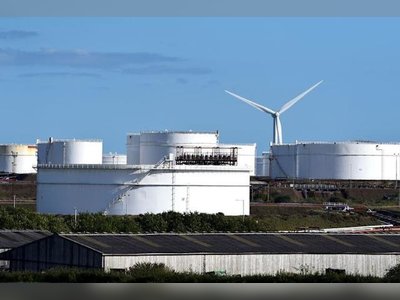UK Government Announces £150 Annual Cut to Household Energy Bills Through Levy Reforms
Plan shifts green levies to general taxation and scraps a green-efficiency scheme to ease energy costs for many households
The British government has unveiled a major intervention aimed at cutting average household energy bills by around £150 each year, as part of the 2025 budget’s effort to ease cost-of-living pressures.
The savings will be achieved by shifting certain levies from energy bills to general taxation and scrapping a long-running energy-efficiency scheme that critics say failed to deliver for many recipients.
Under the plan, the obligation on energy firms — the Energy Company Obligation (ECO) — will be cancelled from April 2026. That requirement had forced suppliers to fund home-insulation and heating-system upgrades, with the cost passed indirectly to consumers.
The government said the scheme had suffered from poor delivery and fraud, and that abolishing it would cut the legacy costs built into bills.
Simultaneously, 75 percent of the costs of the Renewables Obligation (which supports renewable electricity generation) will be transferred to the Treasury rather than borne by users.
Officials estimate that, without these changes, the price cap on average dual-fuel household bills — set by the energy regulator — could rise to £1,758 in January.
The reforms are expected to reduce that typical bill to about £1,665 when they take effect in April 2026. However, not everyone welcomed the shift.
Environmental and anti-poverty organisations warned that scrapping the ECO may leave vulnerable households — especially those in poorly insulated homes — exposed to fuel poverty, while weakening long-term energy-efficiency efforts.
Some argued the change trades short-term bill relief for long-term increases in energy demand and carbon emissions.
Supporters of the plan described it as a pragmatic way to relieve immediate pressure on households facing rising costs without substantially raising general taxation.
They noted that moving levies off bills would also reduce volatility in energy costs linked to fluctuations in global fuel markets.
The plan forms part of government pledges to reduce energy bills by as much as £300 a year by 2030, under a broader clean-energy transition strategy managed by the newly established Great British Energy.
For now, the reforms offer immediate relief, but also raise questions about the balance between cost, efficiency and long-term sustainability in Britain’s energy system.
The savings will be achieved by shifting certain levies from energy bills to general taxation and scrapping a long-running energy-efficiency scheme that critics say failed to deliver for many recipients.
Under the plan, the obligation on energy firms — the Energy Company Obligation (ECO) — will be cancelled from April 2026. That requirement had forced suppliers to fund home-insulation and heating-system upgrades, with the cost passed indirectly to consumers.
The government said the scheme had suffered from poor delivery and fraud, and that abolishing it would cut the legacy costs built into bills.
Simultaneously, 75 percent of the costs of the Renewables Obligation (which supports renewable electricity generation) will be transferred to the Treasury rather than borne by users.
Officials estimate that, without these changes, the price cap on average dual-fuel household bills — set by the energy regulator — could rise to £1,758 in January.
The reforms are expected to reduce that typical bill to about £1,665 when they take effect in April 2026. However, not everyone welcomed the shift.
Environmental and anti-poverty organisations warned that scrapping the ECO may leave vulnerable households — especially those in poorly insulated homes — exposed to fuel poverty, while weakening long-term energy-efficiency efforts.
Some argued the change trades short-term bill relief for long-term increases in energy demand and carbon emissions.
Supporters of the plan described it as a pragmatic way to relieve immediate pressure on households facing rising costs without substantially raising general taxation.
They noted that moving levies off bills would also reduce volatility in energy costs linked to fluctuations in global fuel markets.
The plan forms part of government pledges to reduce energy bills by as much as £300 a year by 2030, under a broader clean-energy transition strategy managed by the newly established Great British Energy.
For now, the reforms offer immediate relief, but also raise questions about the balance between cost, efficiency and long-term sustainability in Britain’s energy system.










